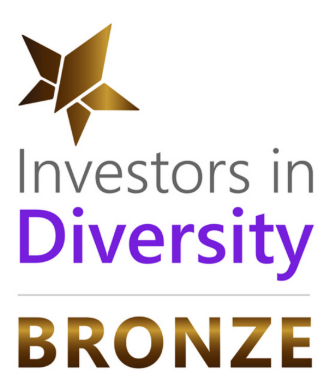QQI participates in EQF Advisory Group
(Looking for our article on ENIC-NARIC Joint Meeting? Find it here)
The European Qualifications Framework Advisory Group (EQF-AG) met on the 7th and 8th June in Brussels. QQI staff members Órla Barry and Andrina Wafer attended, representing the work of qualifications frameworks and validation (RPL) respectively. The meeting featured updates on national developments, including the timelines for the presentation of referencing reports, and a comprehensive note on relevant developments was also provided, much of which was covered on the agenda.
Independent study launched
An external independent study supporting the evaluation of the 2017 EQF Council Recommendation was launched. The study will be conducted by Visionary Analytics, in cooperation with Ockham IPS, started in May 2022 and will run for 12 months.
The study team will rely on scoping interviews with EQF Advisory Group representatives and EQF National Coordination Points, and extensive desk research; John O’Connor and Órla Barry are scheduled to meet with them on behalf of QQI.
The EQF AG provided feedback on the proposed scope of the study, noting its ambition and emphasising the challenge of engaging with end users as stakeholders and the necessary focus locally on NQFs, rather than EQF.
Next inventory of NQFs
Since 2009, Cedefop has carried out regular reviews of NQF developments in countries that are a part of the EQF process (the NQF European Inventory). This systematic mapping and analysis have directly supported the development of operational and sustainable NQFs.
A survey will be circulated to EQF National Coordination Points in June 2022, for return in September. This survey is heavily informed by previous surveys and much of the information can be simply updated. A new section about registers and databases has also been included.
EQF-related supports for Ukrainian refugees
The Commission is providing extensive support to the Ukrainian people and briefly updated on aspects relating to education and training. The Commission Recommendation of 5 April aims to provide guidance and practical advice to ensure a quick, fair and flexible recognition process of professional and academic qualifications. Ongoing work includes the publication of the Guidelines on Fast-track Recognition of Ukrainian Academic Qualifications.
The work of the EQF AG separately had established a comparison project in 2019 in the context of the Third Country Dimension of the EQF, comparing the EQF to another NQF on its own merits, linking systems and enhancing transparency. The Comparison work with Ukrainian Ministries, Authorities and a wide range of stakeholders is co-ordinated by the European Training Foundation (ETF) has been providing extensive support for this pilot, consisting of content and methodological guidance and expert support to the process, including the design of the pilots, coordination of the dialogue, analysing and drafting documents and drafting the comparison reports, supporting monitoring and evaluation. Representatives of other Member States work as part of the Third Country Dimension project, and in particular as part of the development of comparison studies. The timely, comprehensive presentation by Ukrainian and EQF colleagues at the meeting was met with thorough engagement.
A final comparison report will be published in both English and Ukrainian on the websites of the Commission and the Ukrainian authorities and will further support our understanding.
Ukraine is part of the Bologna process and is a signatory of the Lisbon Recognition Convention. To learn more about the Ukrainian education and training system, visit:
- ENIC-NARIC
- Focus Ukraine (CIMEA)
- ETF Europa - Information for EU member states
- NARIC Ireland Foreign Qualifications Database
Digital transformation
The Commission provided updates on the state of play of both digital credentials and the provision of information on qualifications and learning opportunities in Europass. It was clear from discussions that the focus on digital credentials varied greatly across member countries with some already issuing digital credentials, while others have no plan to do so. The current state of progress of several projects were also highlighted, including Europass, DEQAR and European Blockchain Service Infrastructure.
3rd Update of the European Guidelines on Validation (RPL)
The 2012 Recommendation commits to a regular updating of the European Guidelines on Validation. This update, delivered by Jens Bjornevold and Ernesto Villalba Garcia, CEDEFOP and followed by a discussion, is the third following extensive consultation and project work. The next edition will be published in 2023 and celebrated at the Spring Validation festival in Brussels.
The Guidelines build on the principles of the Recommendation and works with the Inventory, underlining options and implications when establishing arrangements.
The 2023 Guidelines will look and feel different from other guidelines and will link to case studies and other platforms, serving a wide range of audiences, from practitioners to policy makers, standards' developers to labour market actors to QA Officers.
European Inventory on Validation
The Country Inventories on Validation are an important contribution to mapping progress nationally and internationally on the implementation of the 2012 Recommendation on validation of nonformal and informal learning (RPL). CEDEFOP and the Commission work together on the management of the Inventories and on synthetic thematic reports which inform peer learning activities, further studies, projects and supports.
The Inventory research will commence in quarter three, continuing through 2022. It is very helpful if the work in RPL that you do can be made visible! Publish policies, procedures, approaches - including the responsible person in your context, and case studies. So much has happened systemically since the last inventory (2018). How have we addressed the challenges identified? Have we responded to new developments and Recommendations and can we support our responsiveness with data?


